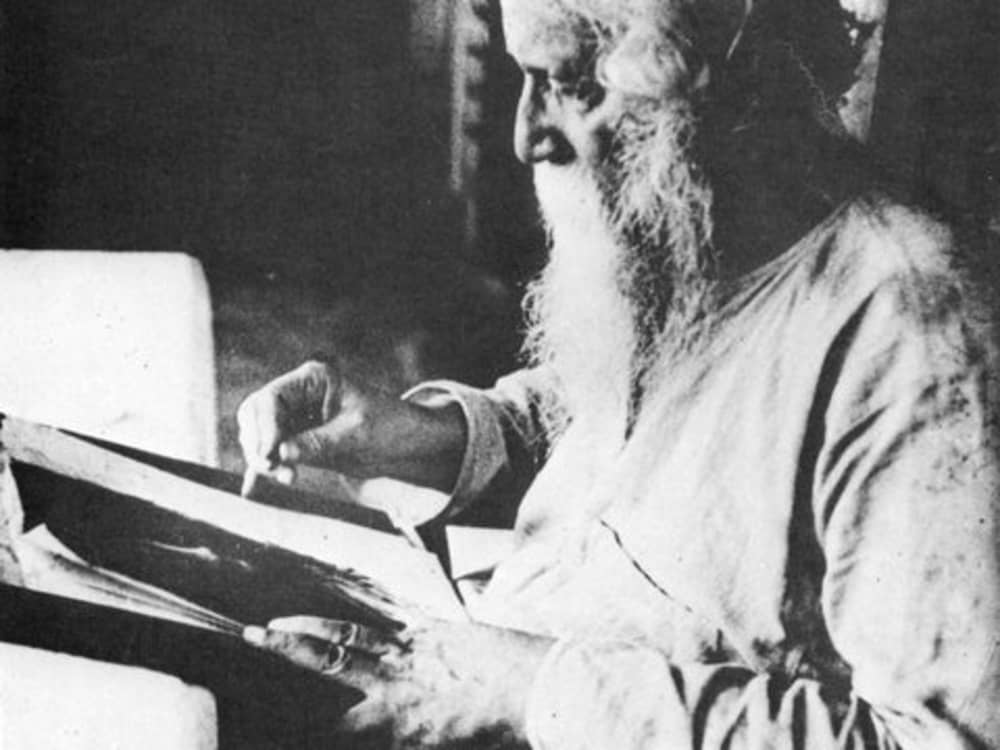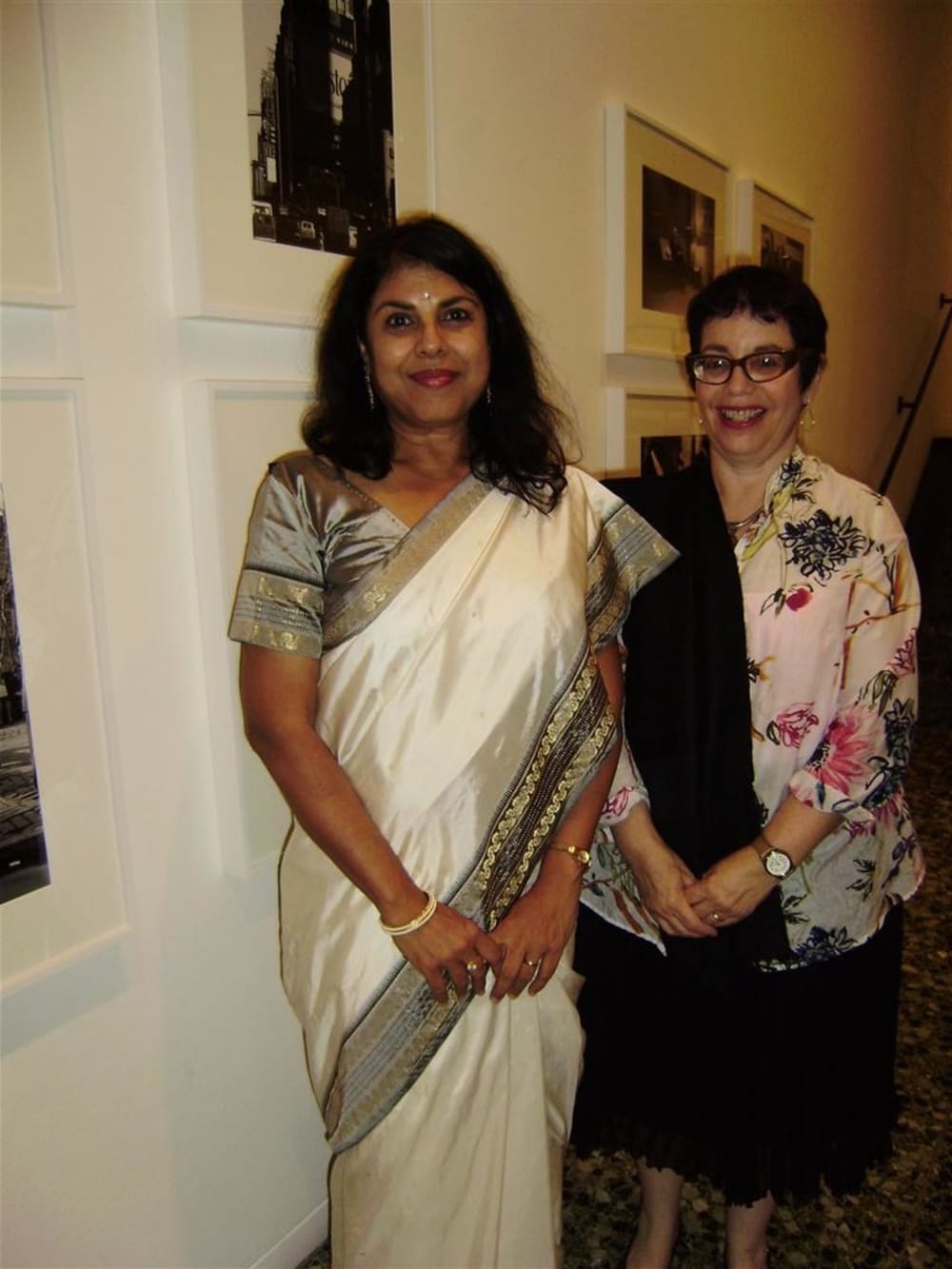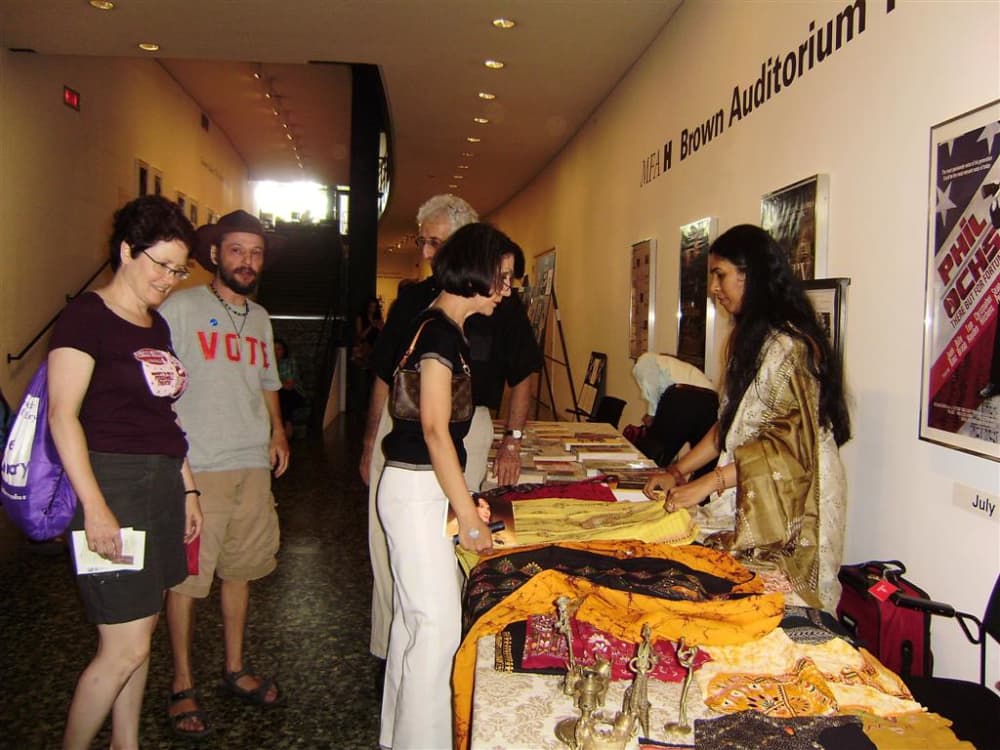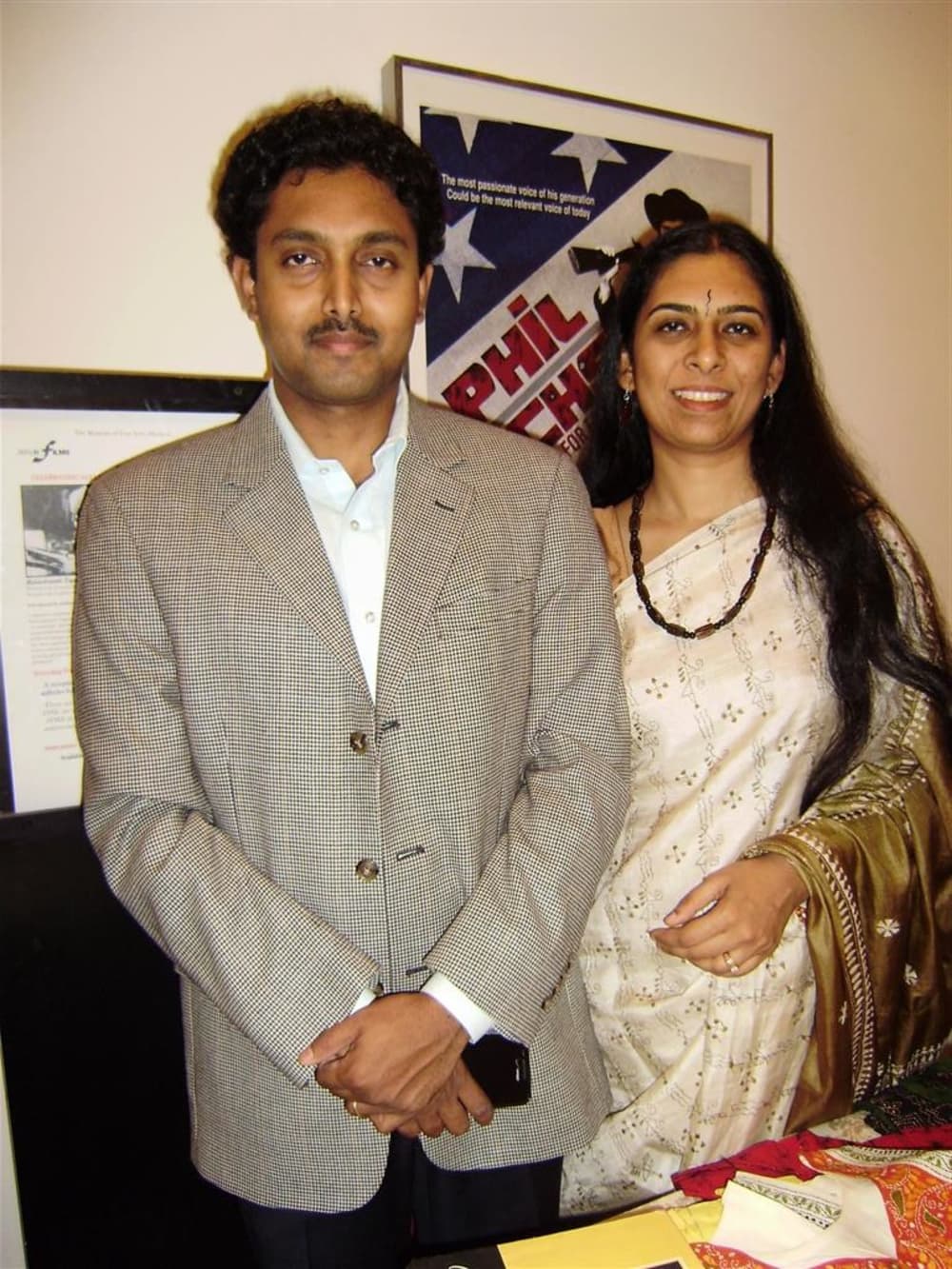Houston's diversity
MFAH celebrates work of Indian Nobel Prize laureate Rabindranath Tagore in movieseries
 Rabindranath Tagore
Rabindranath Tagore Chitra Banerjee Divakaruni, left,Marian LuntzPhoto by Ruchi Mukherjee
Chitra Banerjee Divakaruni, left,Marian LuntzPhoto by Ruchi Mukherjee Moviegoers browse therough handicrafts and books from SantiniketanPhoto by Ruchi Mukherjee
Moviegoers browse therough handicrafts and books from SantiniketanPhoto by Ruchi Mukherjee TSH president Raja Banga, left, Debleena BanerjiPhoto by Ruchi Mukherjee
TSH president Raja Banga, left, Debleena BanerjiPhoto by Ruchi Mukherjee
As the first Asian to receive the Nobel Prize for literature in 1913, Rabindranath Tagore influenced many notables, including Mahatma Gandhi, Audrey Hepburn, Satyajit Ray, Albert Einstein, and Indira Gandhi. Yet he is quite unknown to many.
However, Tagore's anonymity was bridged during recent events at the Museum of Fine Arts, Houston. To mark the 150th anniversary of his birth, the museum hosted the works of Tagore and of legendary film director Satyajit Ray. The event, which also celebrated the 90th anniversary of Ray's birth, kicked-off last week with Ray's documentary about Tagore and a screening of Ray's most famous work Charulata (The Lonely Wife), based on a Tagore novel, on Friday night.
MFAH curator of film and video Marian Luntz and Houston-based writer Chitra Banerjee Divakaruni introduced the intercultural audience to Ray and Tagore. In a conversation, Divakaruni, who hails from Calcutta now called Kolkata, said the movie had made a great attempt to explain the rich cultural heritage of the state of Bengal. "For instance, the main protagonist might be a simple bored housewife but she is very intelligent and a vivid reader who discovers her passion as a writer," Divakaruni explained.
Tagore, who was born in 1861 in India, started his career with a brief stay in England in an attempt to study law, but he returned to India, and instead pursued a career as a writer, playwright, songwriter, poet, philosopher and educator. His most acclaimed work is a selection of poems, Gitanjal, that has been translated into English from his native language Bengali. Also a social reformer, Rabindranath started an experimental school at Shantiniketan where he instilled his Upanishadic ideals of education.
He participated in the Indian nationalist movement which made Gandhi, the political father of modern India, his devoted friend. Tagore was knighted by the ruling British Government in 1915, but within a few years he resigned the honor in protest against British policies in India. Although Tagore wrote successfully in all literary genres, he is remembered mostly as a poet.
The Lonely Wife (Charulata) is based on "Nastanirh (The Broken Nest)," a story by Tagore and set in Kolkata in the late 19th century when the Bengal renaissance was at its peak and India was under British rule. The film was Ray's twelfth feature film and the director's favorite. It was a stand out among Ray's films and explores the emergence of the modern woman in the upper-class of colonial India. One can not help but draw parallels with Ibsen's A Doll's House.
The context is suggestive with details like the opening sequence where the young wife Charulata is moving from one window to another in her house, observing the activities of the outside world through the window blinds using opera glasses. She feels like a caged bird in her mansion with a keen curiosity and desire to know the outside world.
The evening, which drew an audience of more than 300, was made possible through The Tagore Society of Houston. Surajit Dasgupta from The Tagore Society told the audience that a scholarship program started by the society helps graduate students in the Department of English at the University of Houston study Tagore for a semester. The Tagore Scholarship Grant program sponsors 11 students this year.
